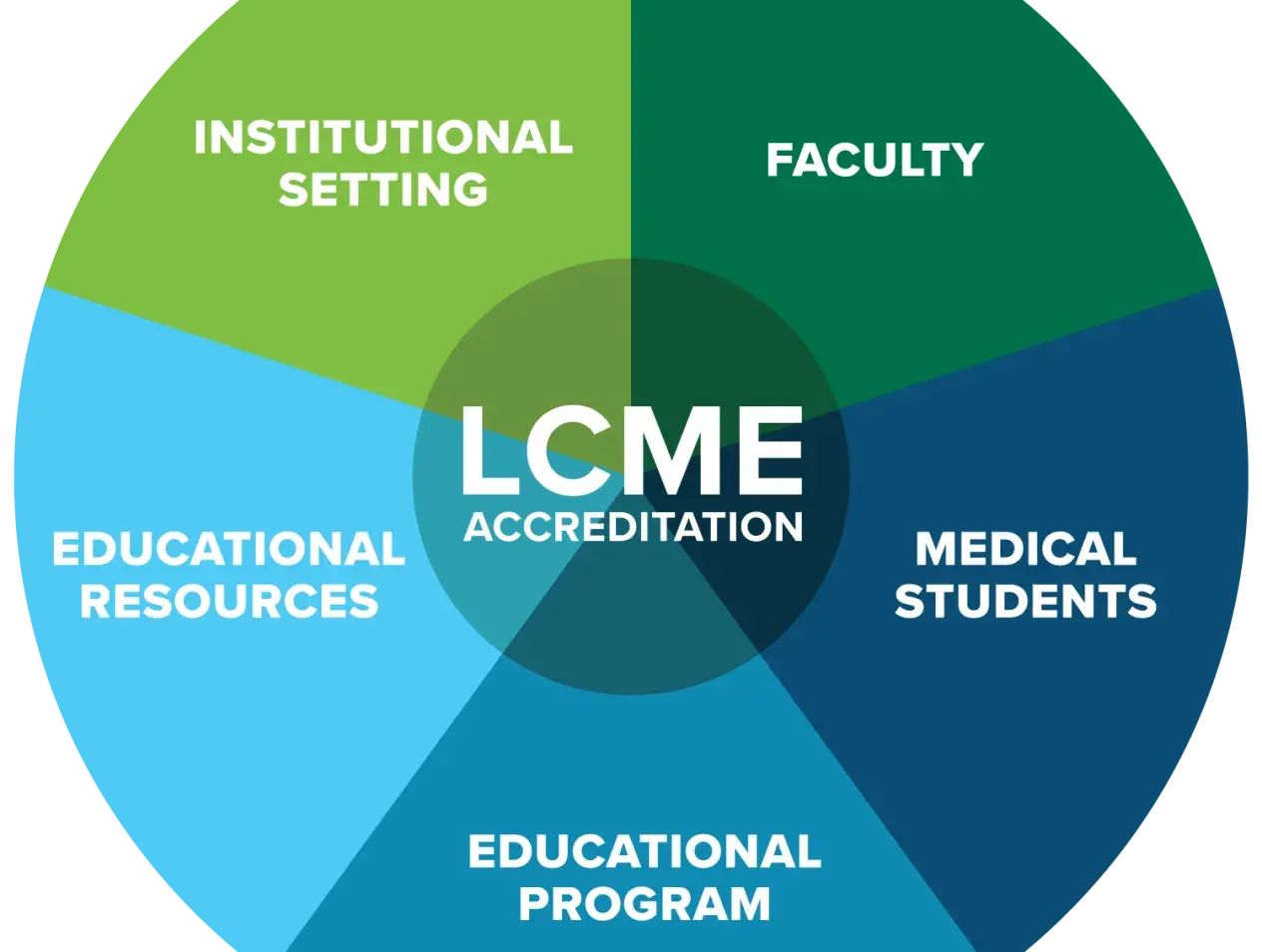
Diversity and Accreditation for the School of Medicine
The Liaison Committee on Medical Education accredits medical education programs leading to the MD degree in the United States and Canada. Learn more about diversity and accreditation below.

LCME Requirements
The Liaison Committee on Medical Education accredits medical education programs leading to the MD degree in the United States and Canada. Several LCME accreditation standards are relevant to cultural competence, disparities, and diversity in a medical school setting.
Standard 3: Academic and Learning Environments
A medical school ensures that its medical education program occurs in professional, respectful, and intellectually stimulating academic and clinical environments, recognizes the benefits of diversity, and promotes students’ attainment of competencies required of future physicians.
3.3: Diversity/Pipeline Programs and Partnerships
A medical school has effective policies and practices in place and engages in ongoing, systematic, and focused recruitment and retention activities, to achieve mission-appropriate diversity outcomes among its students, faculty, senior administrative staff, and other relevant members of its academic community. These activities include the use of programs and/or partnerships aimed at achieving diversity among qualified applicants for medical school admission and the evaluation of program and partnership outcomes.
3.4: Anti-Discrimination Policy
A medical school does not discriminate on the basis of age, creed, gender identity, national origin, race, sex, or sexual orientation.
Standard 7: Curricular Content
The faculty of a medical school ensure that the medical curriculum provides content of sufficient breadth and depth to prepare medical students for entry into any residency program and for the subsequent contemporary practice of medicine.
7.1: Biomedical, Behavioral, Social Sciences
The faculty of a medical school ensure that the medical curriculum includes content from the biomedical, behavioral, and socioeconomic sciences to support medical students’ mastery of contemporary scientific knowledge and concepts and the methods fundamental to applying them to the health of individuals and populations.
7.2: Organ Systems/Life Cycle/Primary Care/Prevention/Wellness/Symptoms/Signs/Differential Diagnosis, Treatment Planning, Impact of Behavioral and Social Factors
The faculty of a medical school ensure that the medical curriculum includes content and clinical experiences related to each organ system; each phase of the human life cycle; continuity of care; and preventive, acute, chronic, rehabilitative, end-of-life, and primary care in order to prepare students to:
- Recognize wellness, determinants of health, and opportunities for health promotion and disease prevention
- Recognize and interpret symptoms and signs of disease
- Develop differential diagnoses and treatment plans
- Recognize the potential health-related impact on patients of behavioral and socioeconomic factors
- Assist patients in addressing health-related issues involving all organ systems
7.5: Societal Problems
The faculty of a medical school ensure that the medical curriculum includes instruction in the diagnosis, prevention, appropriate reporting, and treatment of the medical consequences of common societal problems.
7.6: Cultural Competence and Health Care Disparities
The faculty of a medical school ensure that the medical curriculum provides opportunities for medical students to learn to recognize and appropriately address gender and cultural biases in themselves, in others, and in the healthcare delivery process. The medical curriculum includes instruction regarding the following:
- The manner in which people of diverse cultures and belief systems perceive health and illness and respond to various symptoms, diseases, and treatments
- The basic principles of culturally competent healthcare
- The recognition and development of solutions for healthcare disparities
- The importance of meeting the healthcare needs of medically underserved populations
- The development of core professional attributes (e.g., altruism, accountability) needed to provide effective care in a multidimensional and diverse society.


